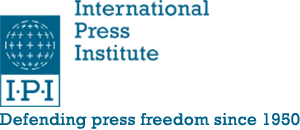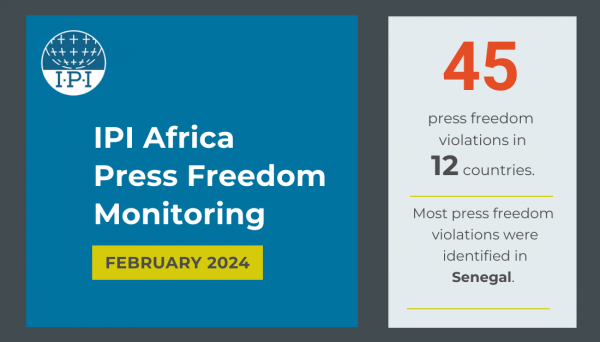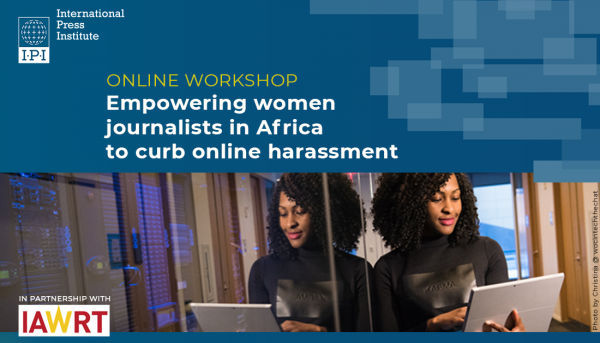In November 2023, IPI documented 24 threats to press freedom in 9 countries in sub-Saharan Africa. Censorship (10) was the most common category of threats. IPI recorded the highest number of incidents in Guinea. State actors remain the main perpetrators, responsible for 75% of the recorded attacks on journalists and media, with the police or security forces (50%) being the main perpetrators of these attacks.
In northern Mali, on November 7, 2023, an insurgent group in the Sahel region killed journalist Abdoul Aziz Djibrilla. Two other journalists, Saleck Ag Jiddou and Moustaph Kone, working with Radio Coton d’Ansongo, were abducted by the same armed group. A fourth journalist, Harouna Attino, working with the radio station Alafia d’Asongo was also injured in the attack.
Since November 24, the internet has been disrupted in Conakry, the capital of Guinea, and its outskirts. Social media platforms such as Facebook, Messenger, WhatsApp, and YouTube were reported to be inaccessible to the general public. Journalists and citizens alike have had to resort to using VPNs to disseminate and access information online. The situation was decried by local press defense and internet groups as a grave violation of freedom of expression and the right of access to information.
This is the second time this year that the internet has been disrupted in Guinea. The state is also reported to be behind the jamming of at least six independent media houses, mainly broadcasters, between November 24 and 29, 2023.
In Burkina Faso, on November 6, two critical journalists, Isaka Langani and Yacouba Ladji Bama, were conscripted by the military authority along with several civil society organization members and critics of the military government. Bama, founder of the online platform Bam Yinga, is currently living outside the country. Langani is a columnist for “Presse Échos,” a political analysis program broadcast by the BF1 TV channel. Also in Burkina Faso, on November 21, the authorities adopted new legislation governing the national media regulatory body, the High Council for Communication (CSC). The new legislation modified the previous law under which the president of the CSC was elected by his fellow councilors. The new law grants the power to the head of the state to choose the president of the media regulatory body, thus placing him/her under the direct control of the president.
In DRC, on November 9, journalist Raphaël Ngoma Mabonzo of Radio Communautaire Muanda (RCM), a station broadcasting in Muanda, in the province of Central Kongo, was arrested and detained by the DRC intelligence service, National Intelligence Agency (ANR). The journalist was presented to the office of the public prosecutor, in Muanda, and accused of disseminating information about a banned meeting of Augustin Matata Ponyo, a presidential candidate in the upcoming December 20 election. The journalist was, however, released the following day, on November 10.


